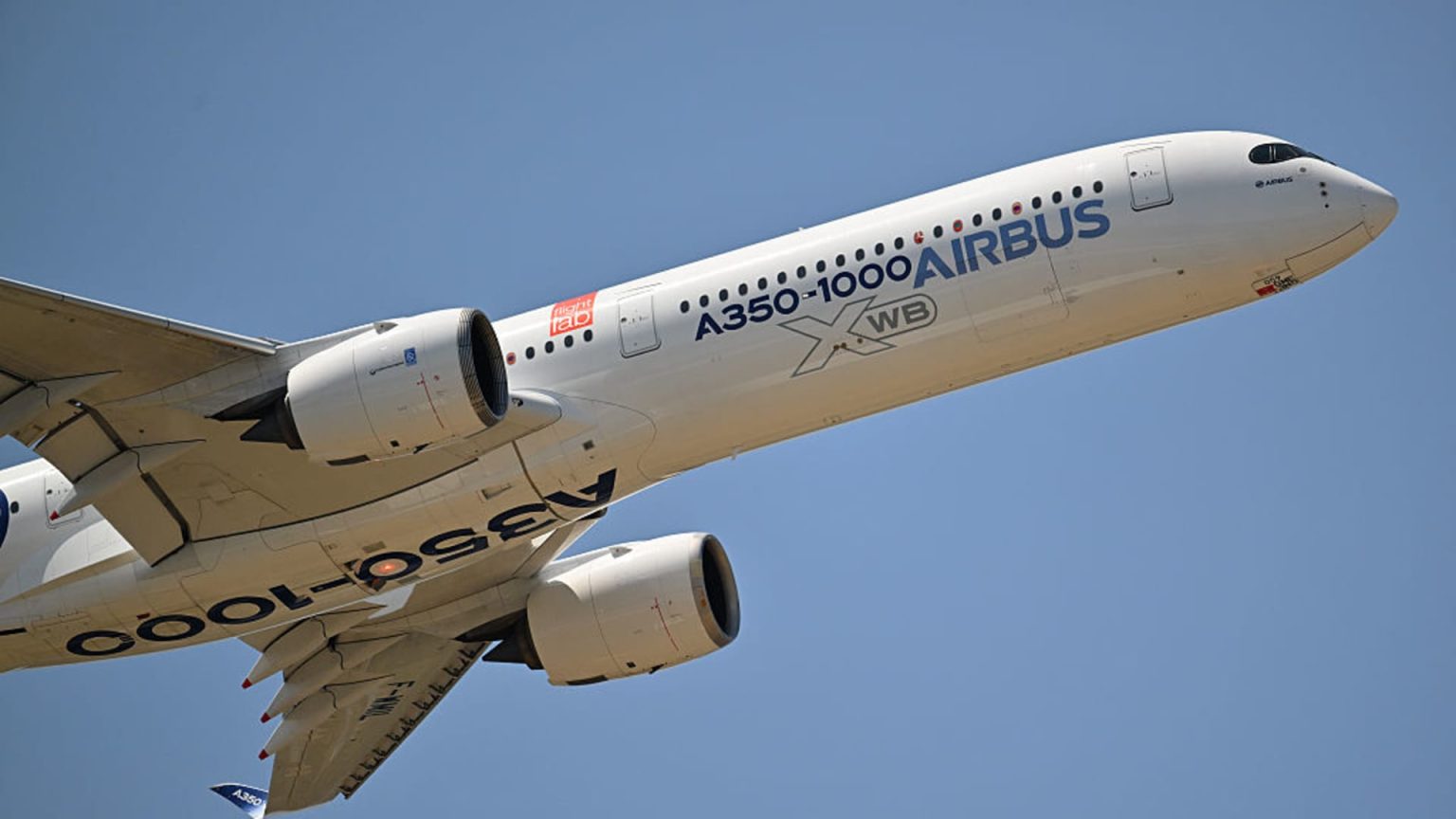The 55th International Paris Air Show has highlighted significant developments in the aviation industry, particularly with Airbus taking center stage amidst a challenging environment for Boeing. As airlines and manufacturers capitalized on this platform to announce aircraft orders, the dynamics between the two leading aerospace companies have come under scrutiny. While Airbus reported a surge in orders, Boeing’s subdued presence has sparked discussions about the overall health of the industry.
| Article Subheadings |
|---|
| 1) Airbus Takes Center Stage with Major Orders |
| 2) Boeing’s Low Profile Amidst Industry Turmoil |
| 3) Robust Demand for New Aircraft |
| 4) Geopolitical Challenges and Their Impact |
| 5) The Future of Aviation: Trends and Predictions |
Airbus Takes Center Stage with Major Orders
This year’s Paris Air Show has been especially noteworthy for Airbus, which reported nearly $21 billion in new orders as of Thursday morning. Major clients included the Saudi leasing firm AviLease, Japan’s All Nippon Airways (ANA), and Poland’s LOT. Notably, Airbus secured 132 firm orders on Monday alone, vastly outpacing Boeing, which recorded only 41 orders during the same timeframe. Further, the company clinched a Memorandum of Understanding for 150 aircraft with VietJet Air, focused predominantly on its efficient single-aisle A321neos. As airlines navigate their post-pandemic flight schedules, the Airbus backlog has grown, showcasing the manufacturer’s pivotal role in shaping future air travel.
Boeing’s Low Profile Amidst Industry Turmoil
In striking contrast to Airbus, Boeing has maintained a significantly lower profile at this year’s air show. The situation surrounding Boeing has been marked by a series of crises, including the fallout from two tragic crashes involving its 737 MAX model and the recent investigation into a Dreamliner incident with Air India. These factors have understandably reduced Boeing’s visibility, pushing the manufacturer to take a more conservative approach. With CEO Kelly Ortberg originally set to attend but later withdrawing due to ongoing investigations, the company refrained from making major announcements throughout the event, choosing instead to focus on customer relationships and crisis management. Industry experts believe that this subdued stance is more of a calculated pause rather than an indication of a declining demand for aircraft.
Robust Demand for New Aircraft
Despite Boeing’s quiet showing, the overall demand for new aircraft remains substantial. According to market analysts, both Boeing and Airbus have backlogs exceeding 5,000 and 8,000 aircraft, respectively. This backlog has not only endured through the recent pandemic-related challenges but also points toward a sustained interest in fleet upgrades among airlines. CEO of Air Lease Corp, John Plueger, emphasized that while the Paris show may not have been as extravagant as those in previous years, the long-term demand environment is solid. Airlines, still grappling with aging fleets, are driven by the economic realities of rising passenger numbers and the need for efficiency, resulting in continued order placements for new aircraft.
Geopolitical Challenges and Their Impact
The complexities of geopolitical tensions have also played a critical role in the dynamics of the aviation industry. The ongoing conflicts in the Middle East and the Russian-Ukrainian war have shaped both the operational environment for airlines and the strategic responses of manufacturers. In this context, defense contracts have also emerged as a focal point at the air show, with nations prioritizing national security in light of recent international developments. Airbus CEO Guillaume Faury noted that while demand remains robust overall, the cloud of recent aviation accidents casts a serious tone over the industry. The need for stringent safety measures remains paramount, influencing the decision-making processes of airlines as they navigate both existing and new orders.
The Future of Aviation: Trends and Predictions
As stakeholders continue to reassess their strategies in response to ongoing crises, the outlook for the aviation industry envisions complexities intertwined with opportunities. With strong profitability seen across many major airlines and an uptick in GDP and travel demand, the appetite for new aircraft seems to persist. Aviation consultancy experts are optimistic about future growth prospects, provided that both manufacturers and airlines refocus on regulatory compliance and safety standards. The combination of evolving market conditions and advancements in technology may further redefine air travel, suggesting that the aviation industry could be on the cusp of yet another transformative phase.
| No. | Key Points |
|---|---|
| 1 | Airbus secured approximately $21 billion in orders at the Paris Air Show. |
| 2 | Boeing’s presence was muted due to recent crises and investigations. |
| 3 | Demand for new aircraft remains robust, with both manufacturers reporting large backlogs. |
| 4 | Geopolitical tensions have significantly affected the industry landscape. |
| 5 | The future of aviation will likely hinge on regulatory compliance and technological advancements. |
Summary
The Paris Air Show this year has showcased a stark contrast between Airbus’s proactive strategy and Boeing’s cautious approach. While Airbus has secured significant aircraft orders, Boeing’s challenges highlight the influence of external pressures on industry giants. The overall demand for new aircraft remains strong, despite recent aviation tragedies and geopolitical instabilities, underscoring a complex but persistent appetite for innovation and fleet renewal in the aviation sector.
Frequently Asked Questions
Question: What are the main factors driving demand for new aircraft?
The primary factors driving demand include the need for fleet renewal, increased passenger travel post-pandemic, and advancements in aircraft technology that promise greater efficiency and lower operational costs.
Question: How has geopolitical instability affected the aviation industry?
Geopolitical instability has influenced airlines’ operational strategies, leading to increased emphasis on national security, regulatory compliance, and reassessment of fleet decisions amidst ongoing global conflicts.
Question: What technological advancements are shaping the future of aviation?
Technological advancements such as fuel-efficient aircraft designs, automation, and real-time data analytics are reshaping operational efficiency, safety standards, and overall air travel experiences.


